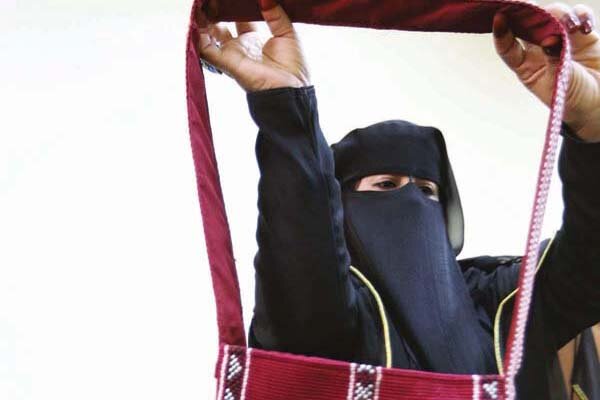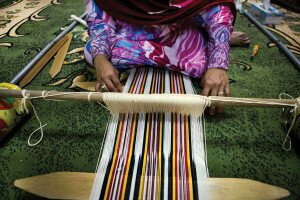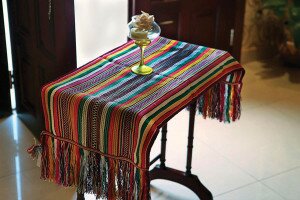Abu Dhabi Week looks at how the Sougha initiative is helping reconnect a community separated by time and modernity
On our travels throughout Abu Dhabi, we’ve picked up a variety of unique treasures. One of our favourites however, is a colourful basket woven entirely from dried palm leaves. Expertly crafted, we picked up this purchase in the midst of the red dunes of the Western Region, and keep it on display as a memento of our time spent in the desert.
Weaving together both past and present, the Sougha initiative has provided local artisans an outlet to practise traditional crafts for today’s market. Translated as ‘souvenir’ from Emirati dialect, contemporary objects for our modern lives – laptop cases, tablet covers and beach bags – have received a traditional Emirati twist and are created using historical methods and materials.
“Bedouin culture is an important part of Abu Dhabi’s old way of life, and weaving for Bedouin communities is not a hobby or a craft, it is a survival skill,” says Leila Ben-Gacem, senior manager, Entrepreneurship Development Department, Khalifa Fund.
In the days before, after daily chores were completed, women used to gather around and sit together and weave. They’d create tents for shelter from the sun’s blinding rays, rugs and blankets for comfort, milking balls and other necessities needed for the harsh desert life. “We are a sea people; we used the palm tree for all our needs, a long time ago. We had to weave to make all we needed, but now we have everything available to buy, so we stopped,” says Mariam Al Marzouqi, a Sougha artisan from Mirfa, in the Western Region.
“My daughter is 40 years old; she never knew that I could weave until I joined Sougha. I had stopped weaving until two years ago, and did not imagine that there was a place for what I do today, but now my products sell and I have an income. I am glad I am weaving again, so people know about our heritage and I feel I have a responsibility to preserve it now,” adds Al Marzouqi.
The need for such preservation and appreciation of the old ways was only part of the inspiration behind Sougha. A Khalifa Fund initiative, which began in 2009, focuses on the training of artisans which is done with sustainability in mind. From the goods and materials used to the hands-on business experience gained from selling items, artisans are taught skills to become self sufficient and self employed.
“Most artisans that joined Sougha over one year ago, now manage their own production, product design, re-invest their sales into new raw materials and some even train family members to increase their production,” adds Ben-Gacem.
After recruiting local skilled residents, both men and women, the Sougha team teaches participants about how to make products and items that are sellable. “We do not give salaries or bonuses or raw material, but will create market opportunities for the dedicated entrepreneurs who respect the quality, specifications and understand market needs. We try to make the artisan as sustainable as possible as a supplier for Sougha, which markets and sells on their behalf. All generated income goes back to the artisan maker,” says Ben-Gacem.
With over 200 artisans working from home in fourteen towns across the emirates, and a waiting list of eager entrepreneurs wanting to join the programme, the success of Sougha can be seen in the story being told in delicate stitches – memories of the past, expectations for today, and hope for the future.
For more information and to find out how to purchase goods created by Sougha artisans, visit: www.sougha.ae or follow @soughauae
























